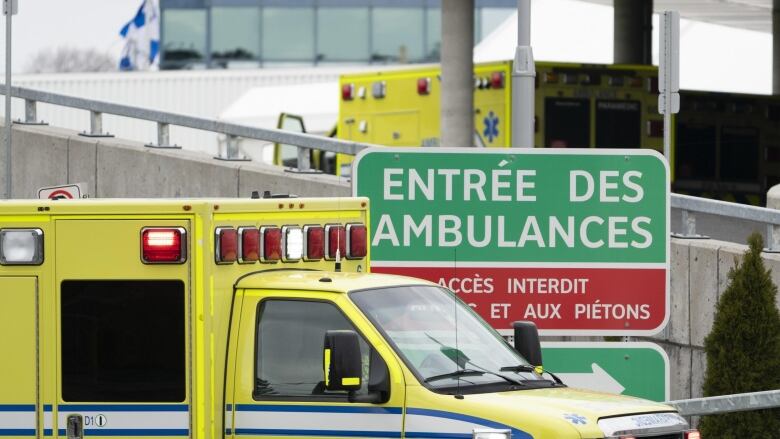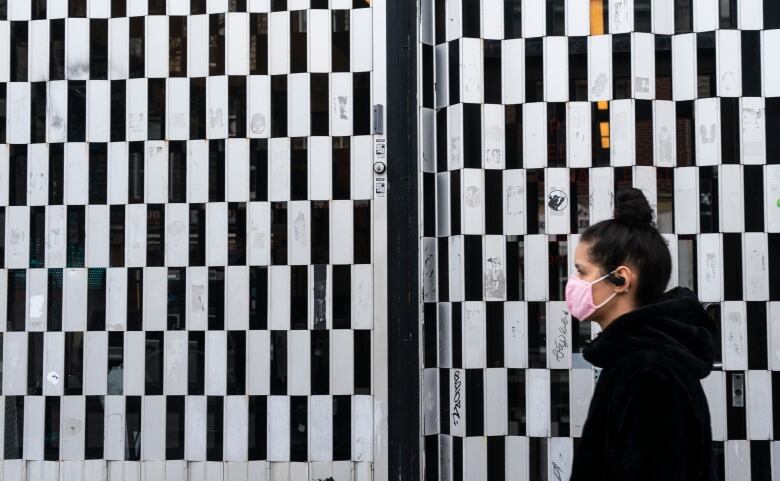Montreal hospitals risk running out of beds for COVID-19 patients by mid-January, projections warn
Rapid increase in hospitalizations is forcing hospitals to find more beds to treat patients with coronavirus

Hospitals in Montreal are rapidly using up the space they have allotted for COVID-19 patients and could run out of beds by Jan. 12, according to bleak new projections released by a government research centre.
This is the first time the research institute the Institut national d'excellence en sant et services sociaux(INESSS) has warned about the possibility of Montreal hospitals being overrunbyCOVID-19 patients.
The projections, which are released weekly, note that hospitalizations have more than doubled in the Montreal area over the past month.
"Contrary to previous weeks, exceeding the dedicated capacity can't be excluded, all the more so because half the designated beds are already occupied," the report says.
The projections cover both regular bed and intensive care unit capacity. While both are in danger of being overrun in early January, the projections indicate it is the existing regular unit capacity (1,200 beds) that is more stretched.
"There is a 25-per cent risk that in the next three to four weeks there will be an overflow of patients," said Dr. Luc Boileau, who heads the institute that produced the projections.
Faced with the rising number of hospitalizations,Quebec's Health Ministry has asked some Montreal hospitals to increase the number of beds available for COVID-19 patients.
"We are taking all the measures necessary to avoid hospital capacity being overwhelmed in the coming weeks," Quebec's Health Ministry said in a statement to CBC.
"Load-sharing plans have been prepared by hospitals and the appropriate actions are being followed."
TheMcGill University Health Centre said Wednesdayit had begun moving adult patients from the Royal Victoria Hospital to the Montreal Children's Hospital.
"Our adult MUHC colleagues are running full tilt, and relocating staff significantly, to care for so many sick adults," Dr. Robert Barnes, a senior administrator at the Children's, said in a statement.
The regional health authority saidit has decreased its operating room activities by up to 50 per cent from the pre-pandemic level.
"We maximize the use of Tele-Health service when applicable," wrote Barry Morgan, a communications officer with the CIUSSS du Centre-Ouest-de-l'le-de-Montral.

'The second wave is hitting hard'
The INESSS has already been warning that hospital capacity was nearing its limit outside of Montreal. That remains a possibility, but is less likely compared to the situation in Montreal, according to the projections.
This represents a noticeable shift from early fall, when hospitals around Quebec City and the Saguenayareaswere bearing the brunt of COVID-19 patients.
On Thursday, Quebec posted yet another record-high number of new cases of COVID-19,2,349. The province has reported a record-setting number ofCOVID-19 cases every day this week.
"The second wave is hitting hard and the holiday break is more pertinent than ever," Health Minister Christian Dub said on Twitter, referring to the two-week closure of non-essential businesses that will begin Friday.
The INESSS projections are based on an estimate of how many new COVID-19 cases will require hospitalization, an estimate based on a number of factors including the age and medical histories of the new cases.
As such, they don't factor in what impact the impending lockdown will have on infection rates and hospitalizations.
"These policies might lower those curves," Boileau said.
With files from Holly Cabrera and Mathieu D'Amours













_(720p).jpg)


 OFFICIAL HD MUSIC VIDEO.jpg)
.jpg)



























































































